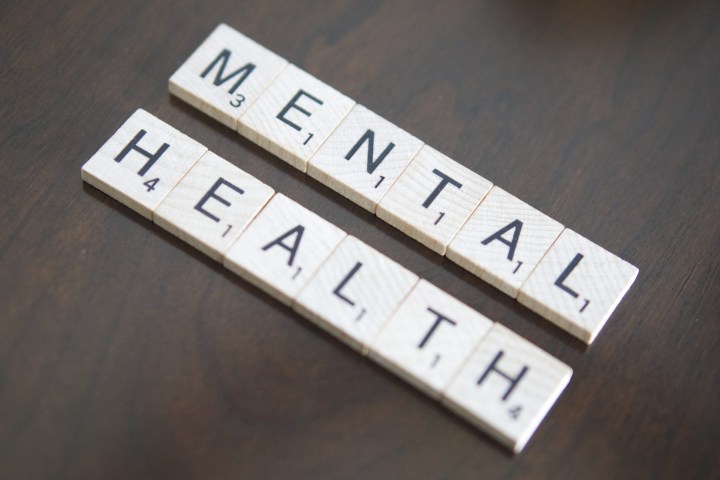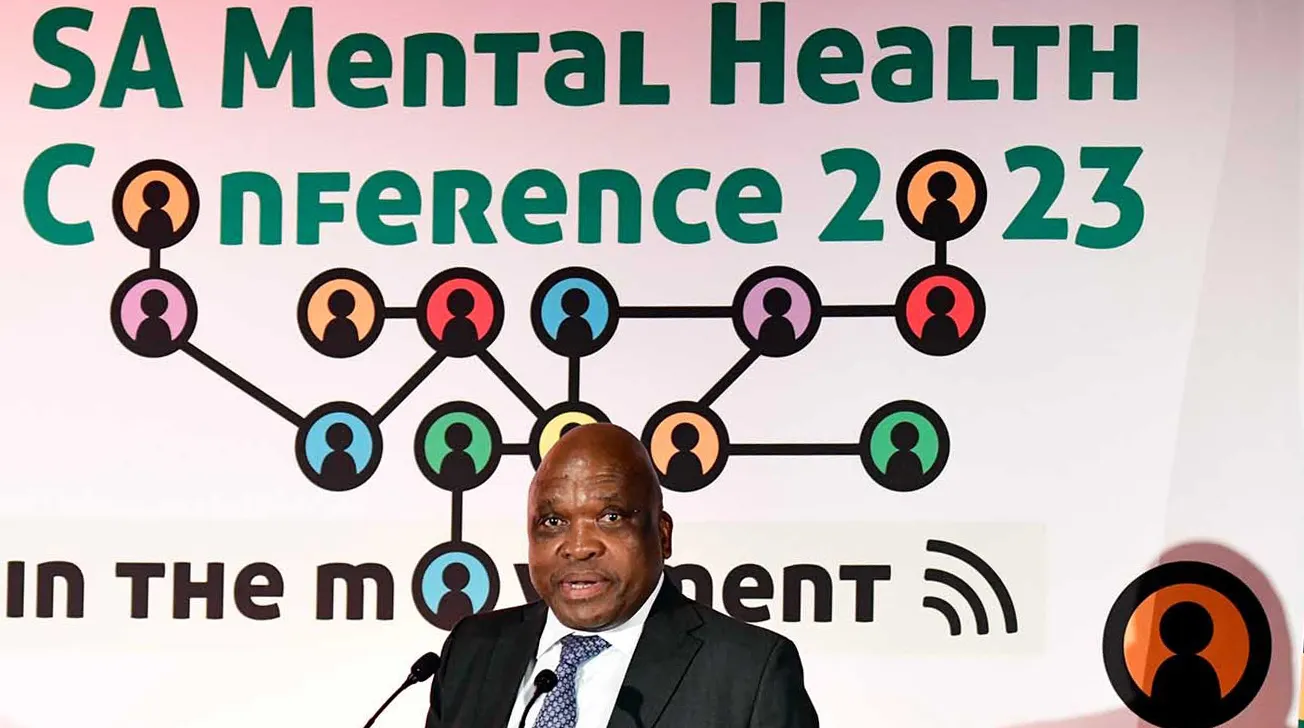SPOTLIGHT
New policies aim to integrate mental health support into HIV services

Research suggests that people living with HIV are more likely to have mental health conditions than the general population. There seems to be consensus that HIV programmes would benefit from including better mental health screening and support services. Two new policy documents – the Mental Health Policy Framework and the National Strategic Plan for HIV, TB and STIs – have a lot to say about providing such integrated services, but will they result in actual changes on the ground?
South Africa has high rates of HIV and mental health conditions. About 13.2% of people in South Africa are living with HIV, according to the latest estimates from Thembisa, the leading mathematical model of HIV in South Africa. These estimated 7.8 million people are also at higher risk of having a mental health condition, although the exact extent of the increased risk is uncertain.
According to figures cited in South Africa’s new Mental Health Policy Framework, 28% to 62% of people living with HIV suffer from mental illnesses. (Spotlight has reported on a similar link between tuberculosis and mental health.)
While the link between HIV and mental health is not new, what is new in 2023 is that the integration of mental health and HIV services has risen to its highest rung yet on the policy agenda in South Africa. According to the new Mental Health Policy Framework, mental health (in South Africa) will be integrated into all aspects of general healthcare, particularly those identified as priorities within the 10-point plan, such as TB, HIV and Aids, and maternal and child health. The new National Strategic Plan (NSP) for HIV, TB and STIs (2023 to 2028) also places much more focus on the integration of mental health and HIV services than any of the previous NSPs.
The shift towards integration is also in line with international thinking. According to the World Health Organization’s 2022 World Mental Health Report, when people with comorbid conditions engage in healthcare, they are usually treated for one or the other of their conditions but not both. As a result, many conditions go unrecognised and untreated in their early stages, increasing the risk of disability and premature death. The WHO report says that integrating mental health services into primary care is a key strategy at the level of healthcare organisations.
Research from the Global Mental Health Network suggests that integrating mental health into HIV programmes has the potential to reduce the rate of HIV infection by 10% 17%, preventing as many as a million new infections worldwide by 2030.
Policy alignment
According to Professor Melvyn Freeman, a consultant on NCDs and public mental health and professor extraordinaire at the University of Stellenbosch, there is good alignment between the new Mental Health Framework and the new NSP.

South Africa’s National Strategic Plan for HIV, TB and STIs (2023 – 2028) was launched on Friday at Tlhabane Stadium in Rustenburg, North West as the world commemorated World TB Day. (Photo: Denvor de Wee / Spotlight)
“There is alignment mainly around integrating mental health into general healthcare and other areas of healthcare, such as HIV and TB. Because there’s a lot of comorbidity between mental health and other conditions, not just the communicable diseases like HIV, but also the noncommunicable diseases,” says Freeman.
Read more in Daily Maverick: Experts welcome new mental health policy but raise concerns over implementation
“Where somebody has a physical health condition, the chances are that they are also going to be at higher risk for a mental health condition,” he says. Freeman says that having a physical condition can lead to people feeling depressed, especially if it’s a long-term chronic condition and stigmatised. “But at the same time, people with mental health conditions are at greater risk for developing other conditions,” he says.
“The most important thing we need to understand is that there is an intertwined link between mental health and HIV, then the National Mental Health Policy Framework helps in a manner that will align the integration of these two services so that there will be no person that will feel discriminated,” says Dr Winnie Ngcobo, a lecturer in mental health at the University of KwaZulu-Natal (UKZN).
‘No realistic plan’
As with many health issues in South Africa, there is a risk that good mental health policies may not be implemented, or poorly implemented – as appeared to have been the case with South Africa’s previous mental health policy framework. Freeman says that part of the reason the previous mental health policy framework was not implemented was a resource problem. He points out that HIV is generally better resourced than many other areas of healthcare.
While there is no realistic plan at the moment in South Africa for integrating mental health into routine HIV and TB services, there is great interest and a lot of movement within the country in recognising the importance of mental health as an underlying factor that affects HIV risk and treatment uptake, as well as treatment adherence, says Jacqueline Pienaar, a technical director at the Aurum Institute, an NGO.
“So it makes sense that the implementers start taking these policy documents (Mental Health Policy Framework and NSP) and using experts to guide them to actually start operationalising it through a model that makes sense to the people living with HIV,” Pienaar says.
According to Pienaar, there is a move at national and provincial health departments to integrate the mental health policy framework into the NSP. Making this work, she says, comes down to the integration at a local level on how they operationalise the NSP goals and objectives by inserting mental health across the NSP objectives. “So the two – although they’re two separate policy documents – the implementation cannot be separate. They have to be integrated,” she says.
It’s just a matter of actually putting the money where our mouth is and getting the people to start implementing mental healthcare alongside HIV care.
According to Ngcobo, it is easy to make mental health services for people living with HIV better. “Develop policies but also engage the policy implementers. They must be involved so that they buy in and then they will be able to run it with the implementation of the policies, then there will be a successful integration of both services, especially [in] primary healthcare settings.”
Evidence shows that integration, such as through task-sharing with lay health workers, can improve the mental health of people living with HIV, even in extremely remote and disadvantaged communities. It can also improve the physical health of HIV-affected communities by reducing the risk and stigma of infection and boosting adherence to antiretroviral treatment.

Minister of Health Dr Joe Phaahla. South Africa’s long-awaited new National Mental Health Policy Framework and Strategic Plan 2023-2030 has been published. The policy framework was presented at the SA mental health conference this week. (Photo: DOH / Twitter)
More holistic service
Pienaar says service provision under these new policies will be far more holistic. “So, instead of only being treated for one illness like HIV, we’ll be treating the whole person. So, understanding that if you have depression or anxiety, we also need to treat that along with HIV or TB because that will improve your quality of life and improve your clinical outcomes,” she says.
Read more in Daily Maverick: Depression, anxiety and childhood trauma: South African study explores links, prevalence and who’s most at risk
She says this will help because patients won’t be sent from one clinic to another for different services. “So, we won’t be treating a patient here for HIV, but you have to go to the other clinic or the hospital for mental healthcare… we will be treating the whole patient at the same time.”
Pienaar says that when people are diagnosed with HIV, they are faced with a lifelong chronic condition. “Our people, especially in South Africa, have this fear and this notion that HIV will kill them. So there is the interplay with depression. These have negative implications on one’s mental health and it usually precipitates into depression far more often than not.”
She says there is a need to understand that treating mental health with HIV does not require a rethink of the whole public health system. “The same people who treat HIV can support mental health improvement. It’s just a matter of actually putting the money where our mouth is and getting the people to start implementing mental healthcare alongside HIV care,” she adds. “It’s the same people, the same clinics, and it’s the same process that you can co-treat both HIV and mental health.” DM
This article was published by Spotlight – health journalism in the public interest.





















 Become an Insider
Become an Insider
Comments - Please login in order to comment.